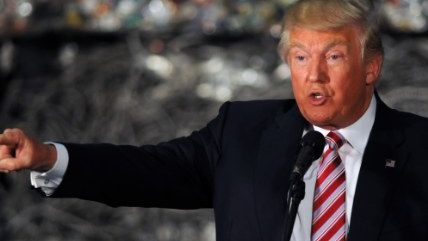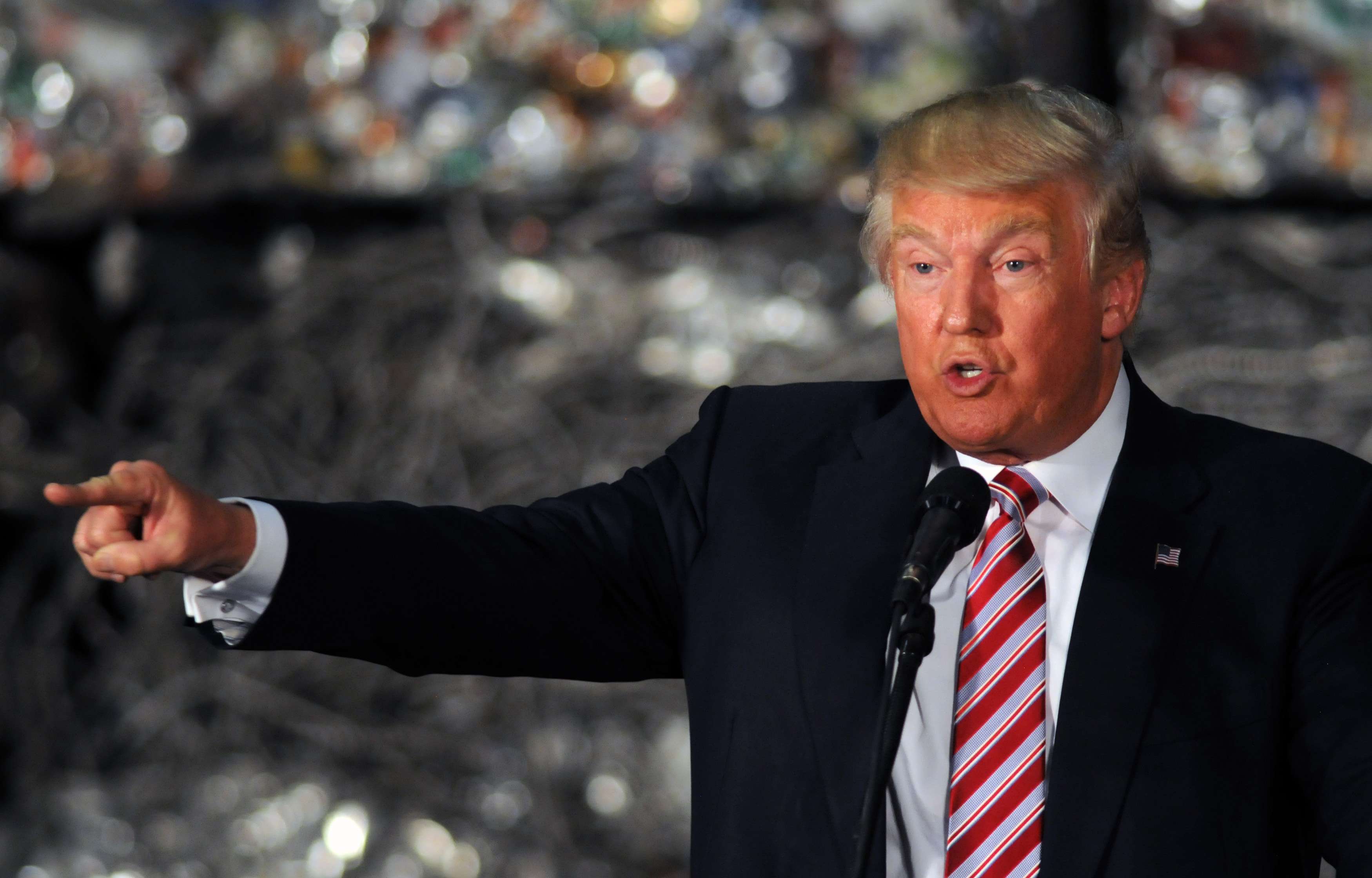On Trade, Trump Is an Encyclopedia of Error
It's all a scam targeting the gullible.


Donald Trump is not a professor, but for years he will be yielding insights to every student of economics. His Tuesday address on trade did a masterful job of combining antiquated fallacies with misinformation and ignorance to create an encyclopedia of error. Instructors have never had so much free help constructing their lesson plans.
The vision Trump conjures is one of alluring simplicity. He promises to achieve "economic independence" by abandoning globalization, instead using American workers to produce American goods. This change, he said, would "create massive numbers of jobs" and "make America wealthy again."
It's a scam, skillfully pitched to fool the gullible. His framework is a house of cards built on sand in a wind tunnel. Its most noticeable feature is a total divorce from basic economic realities.
He scoffs at those who warn he would start a trade war. "We already have a trade war, and we're losing badly," he said. But what he objects to is everyday global commerce, which is not a form of war. It's a form of peaceful cooperation for mutual advantage.
In a war, the Japanese drop bombs on Pearl Harbor that we don't want. In trade, they sell us TV sets and cars that we do want. See the difference?
In war, both sides lose, because their people get killed. In trade, buyers and sellers in each country win—which is why they trade with each other. What's true of individual consumers and producers is also true of nations.
Trump, however, thinks our economic troubles stem from the destruction of manufacturing production and employment, which he blames on foreign competitors. He's wrong on every point of this addled argument.
In the first place, the expansion of manufacturing jobs is not synonymous with prosperity. As countries grow richer, manufacturing's share of employment declines. South Korea, singled out by Trump for killing American jobs, has seen it shrink by nearly half since 1991. Japan and Germany have followed a similar path.
But U.S. manufacturing output is 54 percent higher today than in 1994 and 27 percent higher than in 2001. Those years are pertinent because 1994 was the year NAFTA took effect and 2001 is the year China gained entry to the World Trade Organization—events Trump portrays as catastrophic for American industry.
Manufacturing jobs have vanished not because we don't manufacture anything but because companies have learned to produce more goods with fewer people. Higher productivity is what eliminated most of the jobs Trump mourns. He's no more capable of restoring them than he is of bringing back the dodo.
"NAFTA was the worst trade deal in the history of this country," he exclaimed. But he gives no sign of knowing what it actually did. The main provision was removing import duties among the U.S., Mexico and Canada. Before, the average tariff on Mexican goods coming here was 4.3 percent—while the average tariff on U.S. goods going there was 12.4 percent.
So under NAFTA, Mexico had to cut its import duties much more than we cut ours. Even by Trump's logic, how could that have been bad for Americans?
Trump would have us believe that producers abroad succeed only because they have a free hand to cheat. "When subsidized foreign steel is dumped into our markets, threatening our factories, the politicians have proven … they do nothing," he charged.
Wrong again. At the moment, the U.S. government is punishing allegedly unfair trade practices with special duties on 338 different imports—nearly half of them steel products.
Blaming Mexico and China for the fate of our steel industry is like blaming email for the decline of telegrams. The biggest reduction in steel jobs came before the globalization of the past two decades. The number fell from 450,000 to 210,000 in the 1980s.
The total today is about 150,000. Even if Trump could manage the impossible feat of doubling the number of steelmaking jobs, it would be a blip in the overall economy—which adds more jobs than that every month.
All he would achieve by putting up trade barriers, imposing tariffs and treating our trading partners as enemies is to inflate the cost of imported goods—which would lower the living standard of every American household.
A Trump presidency would be useful for economists because it would serve to refute his misconceptions about trade—just as a massive mudslide in Los Angeles is useful to physicists in dramatizing the power of gravity. But everyone else is advised to flee.
© Copyright 2016 by Creators Syndicate Inc.


Show Comments (58)